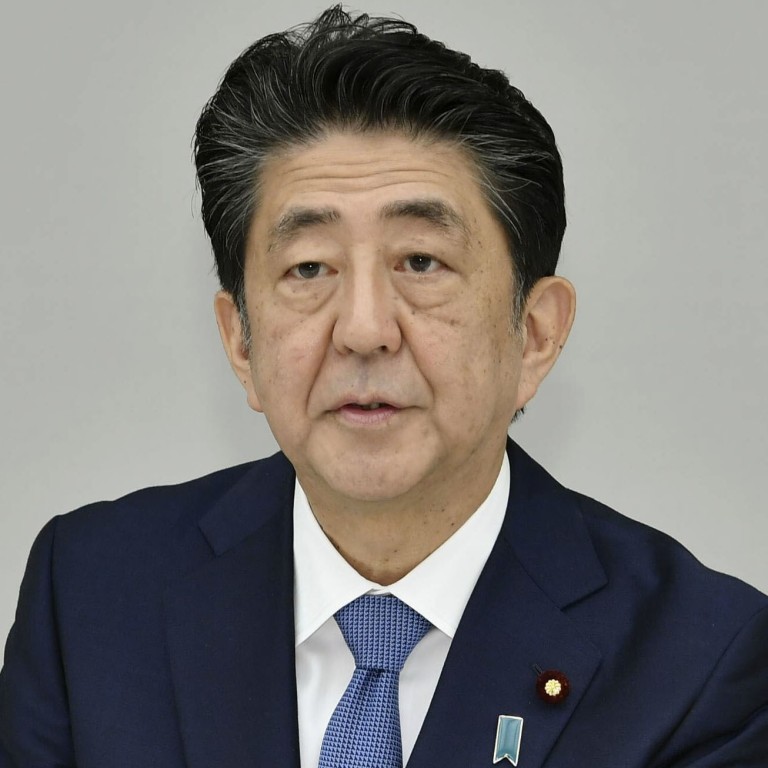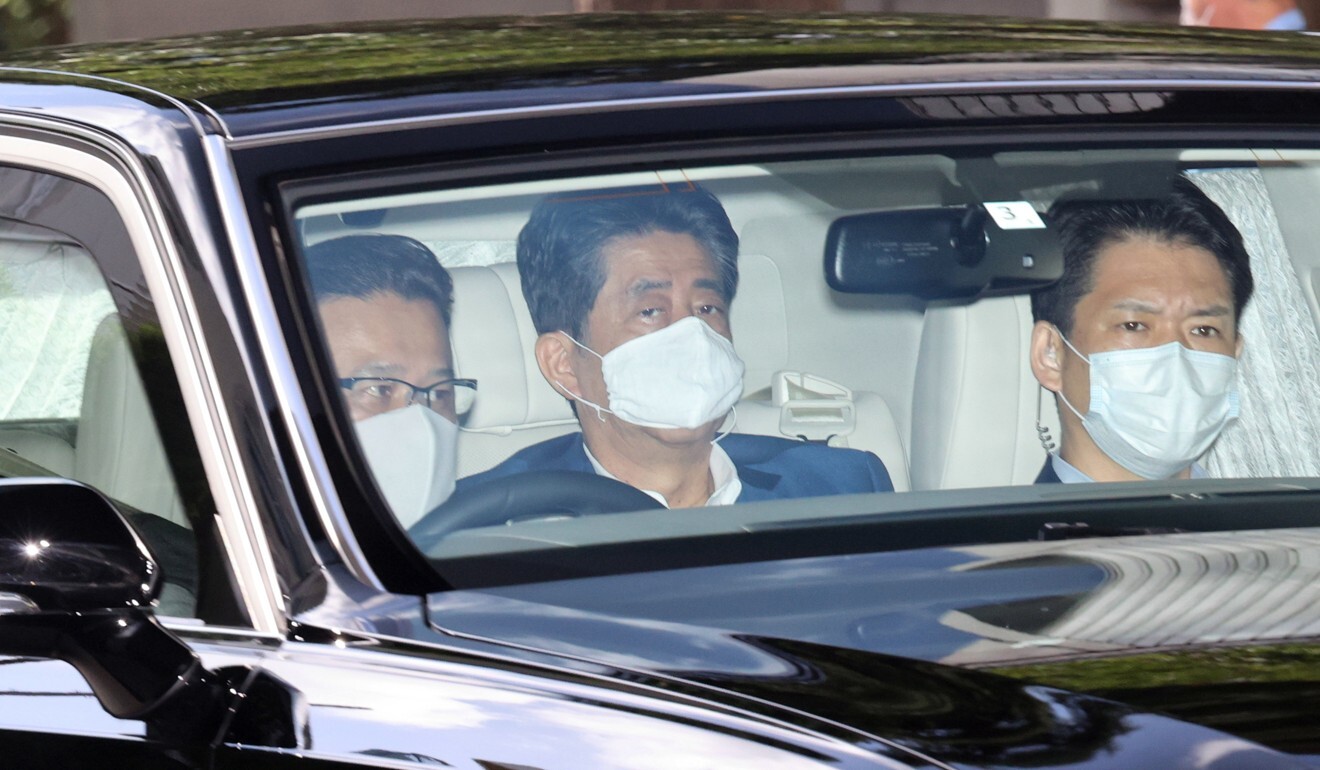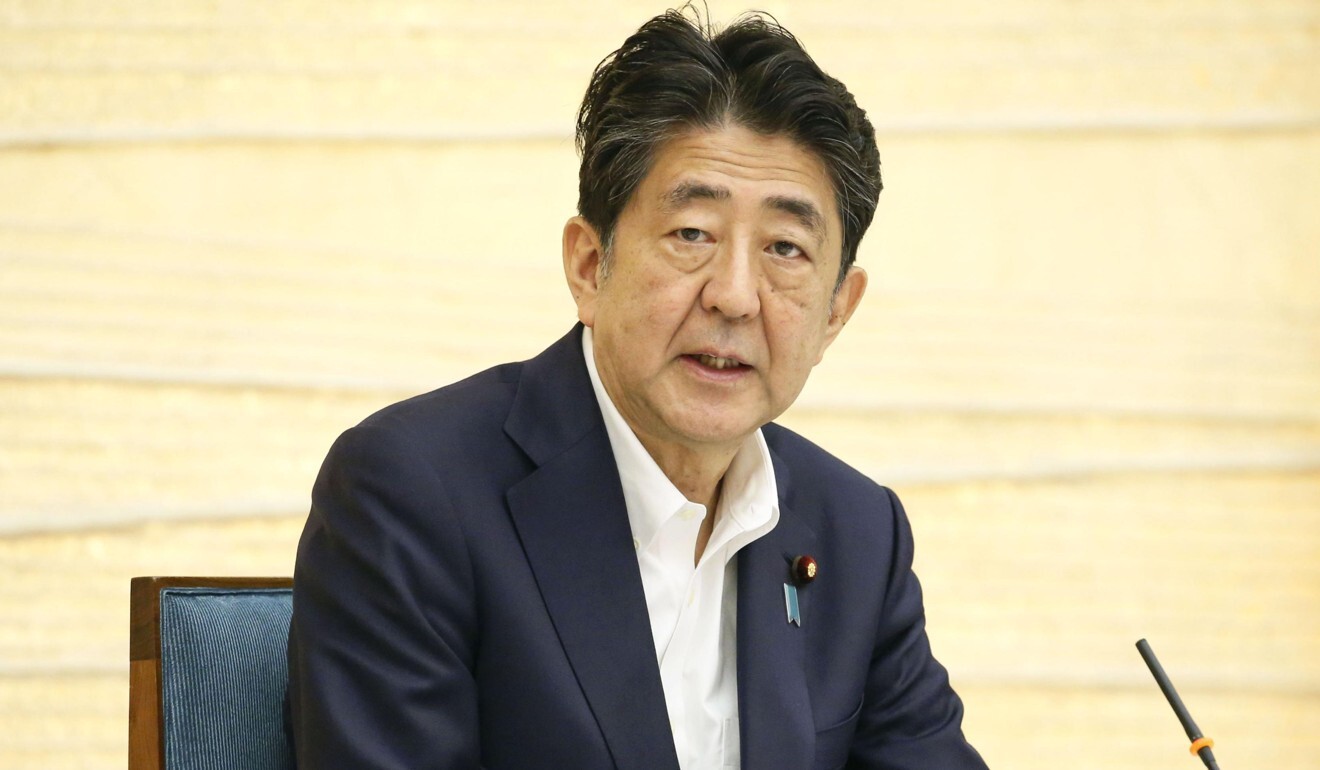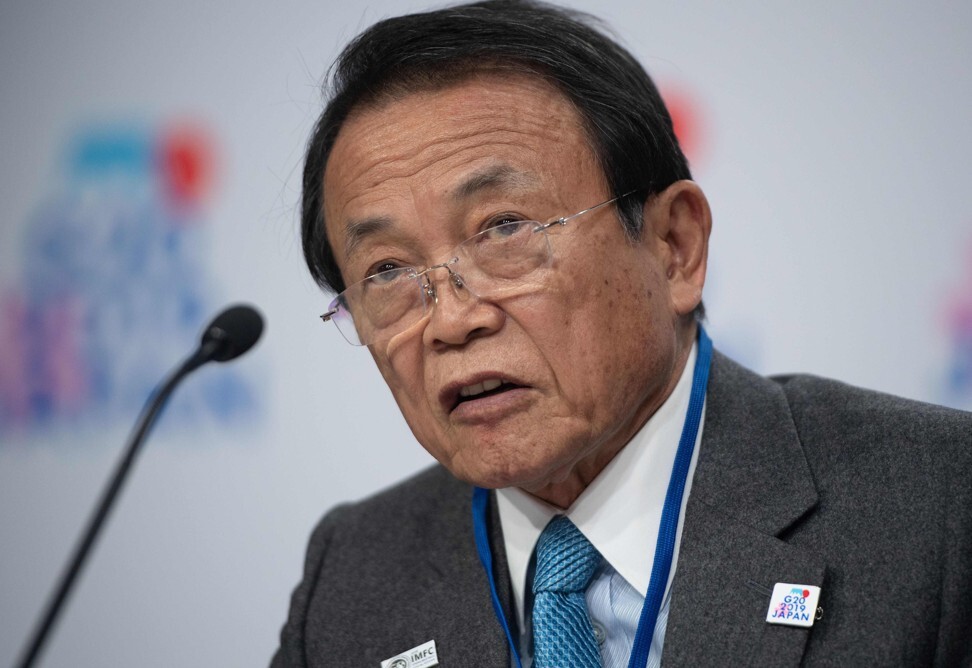
Japan’s PM Shinzo Abe resigns over health concerns, apologises for leaving amid Covid-19 pandemic
- Abe’s resignation ends his run as the country’s longest serving premier. The 65-year-old says he has been struggling with a relapse of his chronic illness
- Explaining his decision to step down, he says ‘poor health should not lead to wrong political decisions’
“I have been struggling with my illness and I have to get treatment. Poor health should not lead to wrong political decisions. I should continuously produce results,” Abe said in a press conference that was translated by local broadcaster NHK.
Shinzo Abe’s resignation: who might become Japan’s next PM?
“I am not confident of responding to the trust of the people while I am dealing with my illness and treatment and my health is not good,” Abe said, at times blinking back tears and choking up.

02:19
Japan’s Prime Minister Shinzo Abe resigns for health reasons
Japan to pay firms US$536 million to shift production from China
Abe is not a strongman figure and there will be no drastic changes even if he steps down
Chinese Foreign Ministry spokesman Zhao Lijian said Abe’s resignation was an internal matter for Japan and China would not comment on it.
Liu Junhong, a research fellow at the China Institutes of Contemporary International Relations, said he did not expect any change to China-Japan ties.
“Abe is not a strongman figure and there will be no drastic changes even if he steps down … Japan is the world’s third-largest economy and will not choose sides between China and the United States,” he said.
Washington on Friday hailed Abe for making the bilateral alliance the strongest ever.
Together with President Trump, Abe has “made the US-Japan alliance, and our overall relationship, the strongest it has ever been,” a senior Trump administration official said in a statement.
“We look forward to working with Prime Minister Abe’s successor in further strengthening our nations’ ties and advancing our shared goals,” the official said.
Japan’s Abe skips Yasukuni Shrine visit to avoid ‘upsetting China’
Tsai was quoted by Presidential Office spokesman Xavier Chang as saying that she “sincerely hopes that Abe will recover his health at an early date”.
Taiwan and Japan do not have official diplomatic relations under the “One China” principle but unofficial and people-to-people relations are robust. Taiwan is Japan’s fourth-largest trading partner.
‘MOOD WILL SOUR’
Analysts said the new leader of the LDP – who would be formally elected as prime minister in parliament and hold the post for the rest of Abe’s term – would likely keep the reflationary “Abenomics” policy, but they were not confident about political longevity.
“Monetary and fiscal policies will remain intact for now, but the mood will sour like it did [the last time Abe resigned],” Tsutomu Soma, a bond trader at Monex in Tokyo, told Bloomberg. “Having a stable government had helped the country pursue various reforms, but political jitters could risk Japan’s position in the international arena.”
Japan’s benchmark Nikkei average fell 2.12 per cent, while the broader Topix shed 1.00 per cent, with the selling wiping US$47 billion off Tokyo’s US$5.7 trillion stock market value that had more than doubled during Abe’s tenure, Bloomberg reported.
Japan’s second quarter GDP shrinks 27.8 per cent as pandemic hits economy
Go Ito, a professor of political science at Tokyo’s Meiji University, said some political instability and confusion should be expected in the coming weeks as the LDP decided when to hold a vote to pick Abe’s replacement.
“We have had the same prime minister for seven years and that in itself provides stability, but before that, Japan had a new leader virtually every year,” Ito pointed out. “That just shows you the weaknesses that are inherent in Japanese politics.”
In the second quarter, Japan was hit by its biggest economic slump on record as the pandemic emptied shopping malls and crushed demand for cars and other exports, bolstering the case for bolder policy action to avert a deeper recession.

HEALTH WOES
He returned to power in 2012, saying that he could keep his condition in check with medicine that had become available. Last month, reports claimed Abe was vomiting blood, and questions arose over his limited public appearances, including to address criticism of his handling of the coronavirus pandemic.

Still, cabinet secretary Yoshihide Suga, Abe’s trusted lieutenant, maintained that the prime minister was expected to remain in his role and continue serving as party leader until his term ended next September.
But Ito of Meiji University said Abe’s resignation was unlikely to have come as a surprise to LDP leaders, despite their protestations that he was healthy.
“We saw the same thing in the days before he resigned the first time in 2007 so this will not be unexpected within the party,” he said.
Would Japan rather be a ‘Sixth Eye’ than share intelligence with Korea?
Masking the issue would also have enabled senior members of the party to make their preparations for what comes next, he said.
Suga, who has been Abe’s right-hand man since 2012, is seen as a potential caretaker premier.
Finance minister Taro Aso, who serves as deputy prime minister, could also step in, but analysts say it is unlikely that he wants the position full time, or that the party will trust him with it for a second time.
Aso was prime minister when the LDP lost control of the government to the opposition Democratic Party of Japan in 2009. On Friday, he said he had no intention to run in the LDP leadership race, Kyodo reported.
Ito said Fumio Kishida, who served as both foreign and defence minister under Abe, was a favourite for the top role, while Shigeru Ishiba, a former defence minister who is popular with voters, would be his biggest rival.
“My personal choice would be Ishiba and I think that he would want to introduce a lot of very different policies to Abe,” he said. “I think his foreign and security policies would be largely the same, but I believe he would do a better job.”
Other names that have been mentioned include foreign minister Toshimitsu Motegi, environment minister Shinjiro Koizumi and defence minister Taro Kono, although Ito believes that none of the three men have sufficient support within the party for a sustained challenge.

ASSERTIVE DIPLOMACY
Abe hails from a wealthy political family that included a foreign minister father, his great-uncle Sato and his late grandfather, former prime minister Nobusuke Kishi.
Kishi was a wartime cabinet minister who was jailed but never tried as a war criminal after World War II. He unsuccessfully tried to revise Japan’s American-drafted 1947 constitution to become an equal security partner with the US and practise more assertive diplomacy.
Abe saw revising the pacifist constitution as a top priority during his term, although many Japanese disagreed, believing the charter was the reason for the country’s post-war record of peace.
He also boosted defence spending and reached out to other Asian countries to counter China, winning praise for reasserting Japan’s presence on the global stage after years of revolving-door premiers.
Japan pledges aid for Mekong nations as China offers vaccine access
He pushed the passage of laws to let Japan exercise the right of “collective self-defence”, or militarily aiding an ally under attack. Analysts said with him gone, Tokyo would need to convince its neighbours and the rest of Asia that it would continue with this approach.
Jeff Kingston, director of Asian Studies at the Tokyo campus of Temple University, said Abe’s biggest legacy was the free trade agreements Japan had signed, including the Comprehensive and Progressive Agreement for Trans-Pacific Partnership, that Tokyo brokered after the US pulled out.
While Abe talked tough on North Korea and said he would secure the release of Japanese nationals abducted by the North in the 1970s and 1980s, nothing came of those efforts, Kingston said.
“Abe is the second-longest serving leader of the G-7 nations, behind [Germany’s Angela] Merkel, but you can’t really say that he has left much of a mark or an international statement.”
“We worked very well together,” she said.
I wish Abe-san a good recovery as he begins treatment for his condition
“Under his leadership, our bilateral relations have deepened … I wish Abe-san a good recovery as he begins treatment for his condition,” Lee said in a Facebook post that included a photo of both leaders at last year’s G20 summit in Osaka.
South Korea’s presidential Blue House spokesman Kang Min-seok said Abe had “achieved many feats as the longest-serving prime minister in Japan’s constitutional history and played great roles in developing bilateral ties”.
“We pray for his quick recovery. The government will continue making efforts with the new Japanese prime minister and his cabinet in order to improve friendly and cooperative ties between the two countries,” Kang said.
What is ulcerative colitis, cause of Abe’s resignation as PM?
Political science professor Lee Won-deog at Kookmin University said Abe’s resignation would provide momentum for Seoul to seek ways to mend its frayed ties with Tokyo, pointing to how Abe “represents everything negative about Japan” for the South Korean government and people.
The neighbours have been at loggerheads over historical and territorial disputes.
“Abe has been seen as trying to revise history by denying Japan’s wartime atrocities, an obstructionist in Seoul’s efforts to resume dialogue with the North and the master behind Japan’s trade retaliation against the South,” Lee said.
Additional reporting by Agence France-Presse, Bloomberg, Reuters and Park Chan-kyong



